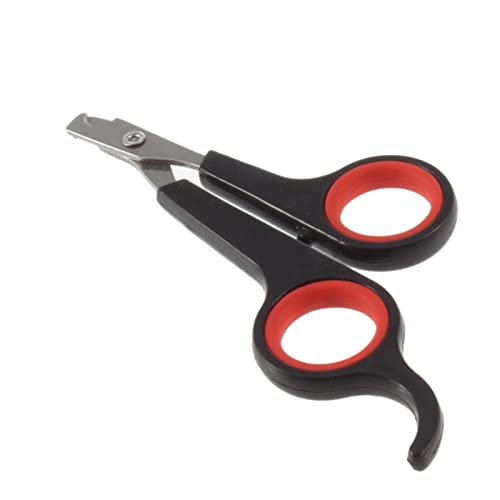i menttr o send a lettero a local news paper about zoos...
so here it is.
Dear, sir,
As your readers might know, there is a popular zoo in Belfast. (Belfast zoo)
But could I ask, is [/i]there a place for zoos in the 21[sup]st[/sup] centuery?
The majority of researched answers are NO.
The public might like to go to a nearby zoo and look at the animals.
They might recall there childhood of eating ice-cream and looking at lions and other big strange animals. But I may stop the readers of the Derry journal.
Stop.
Look out your window. You might see a bird flying freely in the sky. Now think of the zoo animals, being caged and traded like football cards.
When you next go down to the zoo, any one, on holiday abroad home her in Ireland.
Think of the primates when you go and see them. They have a âbigâ enclosure and play things. And maybe some climbing equipment.
Yes the primates have it nice in the enclosure. You think that anyway.
But no. Think of a small 8 year old child. Lets say there is a monkey bar, ropes and climbing toys in the playground. After half an hour or an hour they will get bored and go away. Some monkeys/primates have to spend several years in the same enclosure.
Politics say, and supporters of the zoos, say they help endangered species. Sadly this is not the case. Take polar bears. They are in grave danger in the wild. There icy home is melting.
So what do zoos do? Breed them. But females are picky with there mates. She can toss her nose you a male. This makes breeding harder. But when a cub, or like most polar bears, twins it is great attraction.
But a report by born free foundation, shows that
Less than the majority (43%) donât live beyond one year in captivity.
The majority (57%) die.
In the wild the majority of the young live beyond the first year.
But for most people, the animal s that in zoos give the breed a fighting chance. The rspca also did a report for the Britain and Ireland. It showed that elephants in wild live 40years longer than captive elephants. They have many more health problems like osteoroposis, foot problems and weak hearts.
Working elephants in india and asian countries even live longer.
To me the enclourse is the most important place for the animal. I sleeps, eats, plays and live in it. But zoos try to to he best, but it is not good enough. Even in our local zoo and many others in the world .
Animals are living in enclourses 100 times smaller than there home range. Some times it is 1000 times smaller than there minimum [/b]home range.
This causes stress and frustration . which may lead to abnormal behaviours. Some of these includeâ¦â¦â¦â¦â¦..
Pacing: taking a small area to walk around and around. Some times in circles or squares.
Rocking: is a sign of isolation, neglect and other maltreatment. They (the animals of most kinds) rock all the time expect when they are feeding, drinking or sleeping.
Head swaying: aslso a sign of depression and bordom. The animal just swings its head day in day out. (neck problems)
Self multilation: this is a severe form of abnormal behaviour. This happens in domestic animals like cats and dogs. The animal bits its own leg or tail, chews it foot or other parts of the body it can reach.
They are all treatale, but have been found in Belfast zoo and many others .
You might ask me why I am writing this. It is to tell the truth. Basic and as simple as that.
I found that zoos spend over 100,000 pounds/euro every year. So why donât they use it to help the animals In there natural habitats?
And why are the animals ebdangered? The finger points at man kind.
So this is some thing to think about today.
Yours truely, elena d.
so here it is.
Dear, sir,
As your readers might know, there is a popular zoo in Belfast. (Belfast zoo)
But could I ask, is [/i]there a place for zoos in the 21[sup]st[/sup] centuery?
The majority of researched answers are NO.
The public might like to go to a nearby zoo and look at the animals.
They might recall there childhood of eating ice-cream and looking at lions and other big strange animals. But I may stop the readers of the Derry journal.
Stop.
Look out your window. You might see a bird flying freely in the sky. Now think of the zoo animals, being caged and traded like football cards.
When you next go down to the zoo, any one, on holiday abroad home her in Ireland.
Think of the primates when you go and see them. They have a âbigâ enclosure and play things. And maybe some climbing equipment.
Yes the primates have it nice in the enclosure. You think that anyway.
But no. Think of a small 8 year old child. Lets say there is a monkey bar, ropes and climbing toys in the playground. After half an hour or an hour they will get bored and go away. Some monkeys/primates have to spend several years in the same enclosure.
Politics say, and supporters of the zoos, say they help endangered species. Sadly this is not the case. Take polar bears. They are in grave danger in the wild. There icy home is melting.
So what do zoos do? Breed them. But females are picky with there mates. She can toss her nose you a male. This makes breeding harder. But when a cub, or like most polar bears, twins it is great attraction.
But a report by born free foundation, shows that
Less than the majority (43%) donât live beyond one year in captivity.
The majority (57%) die.
In the wild the majority of the young live beyond the first year.
But for most people, the animal s that in zoos give the breed a fighting chance. The rspca also did a report for the Britain and Ireland. It showed that elephants in wild live 40years longer than captive elephants. They have many more health problems like osteoroposis, foot problems and weak hearts.
Working elephants in india and asian countries even live longer.
To me the enclourse is the most important place for the animal. I sleeps, eats, plays and live in it. But zoos try to to he best, but it is not good enough. Even in our local zoo and many others in the world .
Animals are living in enclourses 100 times smaller than there home range. Some times it is 1000 times smaller than there minimum [/b]home range.
This causes stress and frustration . which may lead to abnormal behaviours. Some of these includeâ¦â¦â¦â¦â¦..
Pacing: taking a small area to walk around and around. Some times in circles or squares.
Rocking: is a sign of isolation, neglect and other maltreatment. They (the animals of most kinds) rock all the time expect when they are feeding, drinking or sleeping.
Head swaying: aslso a sign of depression and bordom. The animal just swings its head day in day out. (neck problems)
Self multilation: this is a severe form of abnormal behaviour. This happens in domestic animals like cats and dogs. The animal bits its own leg or tail, chews it foot or other parts of the body it can reach.
They are all treatale, but have been found in Belfast zoo and many others .
You might ask me why I am writing this. It is to tell the truth. Basic and as simple as that.
I found that zoos spend over 100,000 pounds/euro every year. So why donât they use it to help the animals In there natural habitats?
And why are the animals ebdangered? The finger points at man kind.
So this is some thing to think about today.
Yours truely, elena d.





































































